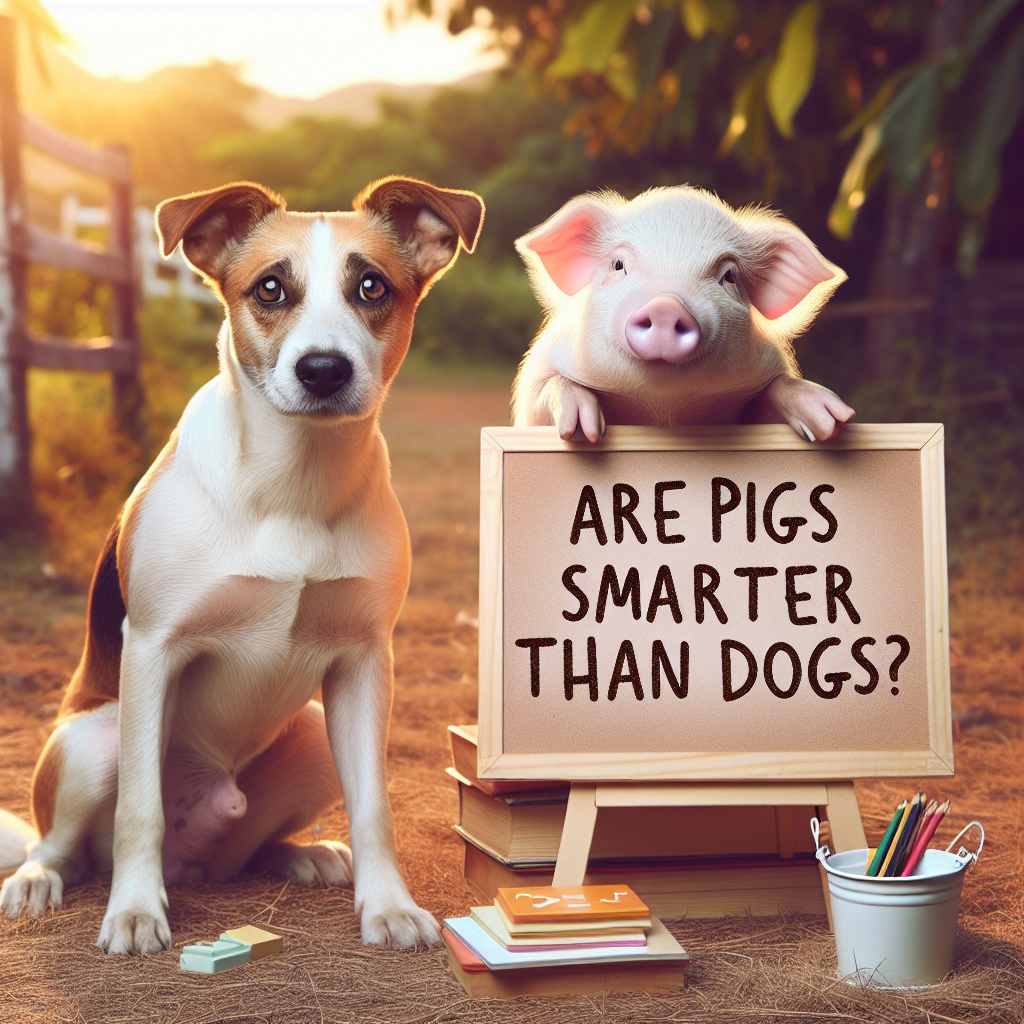When it comes to measuring intelligence in the animal kingdom, dogs have long been lauded as one of humanity’s closest companions and most intelligent species. Their ability to understand commands, their social structures, and their keen instincts have made them beloved pets and working animals. However, recent studies and observations suggest that pigs, often overlooked and underestimated, may rival dogs in terms of cognitive abilities. This article delves into the intelligence of pigs and compares it to that of dogs, exploring the various dimensions of animal smarts.
Understanding Animal Intelligence
Before diving into the specifics of pigs and dogs, it’s important to establish what we mean by intelligence in animals. Intelligence can encompass various abilities, including problem-solving skills, social interactions, self-awareness, memory, and emotional understanding. Each species exhibits its own unique form of intelligence based on ecological adaptations and social structures.
Pigs: An Underappreciated Genius
Research has consistently shown that pigs possess remarkable cognitive abilities. Studies have indicated that pigs can learn complex tasks quickly, recognize their names, and even understand a variety of verbal commands. Here are a few notable points regarding their intelligence:
1. Problem-Solving Skills
Pigs are known to solve problems creatively. In various experiments, pigs have demonstrated the ability to navigate mazes, operate simple devices to obtain rewards, and even manipulate objects to achieve desired outcomes. Their ability to work through challenges reflects a level of cognitive sophistication that is often comparable to that of dogs.
2. Social Intelligence
Pigs are highly social animals that live in matriarchal groups. They communicate with each other through a range of vocalizations and body language. Research has shown that pigs can form intricate social bonds and can demonstrate an understanding of social dynamics, including cooperation and empathy. This indicates a level of emotional intelligence that is significant for survival in their natural environments.
3. Memory Retention
Pigs have an impressive memory. They can remember locations of items and recall experiences for extended periods. This ability to learn from past experiences enhances their problem-solving skills and adaptability in changing circumstances.
Dogs: Man’s Best Friend
Dogs have earned their reputation for intelligence through their long history of domestication and training. Here are some of the key factors that contribute to their cognitive prowess:
1. Trainability and Obedience
Dogs excel in obedience training, often responding to commands with remarkable accuracy. Their desire to please humans and their ability to understand human cues and intentions demonstrate a high level of social intelligence. This trait has made dogs excellent working animals in various fields, including hunting, herding, and search-and-rescue operations.
2. Emotional Awareness
Dogs are known for their ability to read human emotions and respond appropriately. They can sense when their owners are happy, sad, or distressed, and often modify their behavior accordingly. This emotional connection enhances the bond between dogs and humans, making them exceptional companions.
3. Versatile Problem Solvers
Dogs exhibit a range of problem-solving abilities, from basic tasks to complex challenges. Some breeds are particularly adept at specific tasks, such as retrievers excelling in games of fetch. Their adaptability and willingness to engage in activities with humans showcase their intelligence.
Comparing Intelligence: Pigs vs. Dogs
While both pigs and dogs exhibit extraordinary intelligence in their own right, the key differences lie in their social structures and how they have evolved alongside humans.
– Social Learning
Pigs tend to rely on observational learning from their peers in their natural environments, which helps them navigate social hierarchies. Dogs, meanwhile, have evolved to closely bond with humans, developing an understanding of human cues and communication styles that enable them to thrive in human households.
– Task-Specific Intelligence
Dogs tend to excel in tasks that require obedience and social interaction with humans, thanks to their long history of domestication. Pigs shine in tasks that demand independence and resourcefulness, showcasing their adaptability in diverse environments.
– Emotional Bonds
While both animals are capable of forming strong emotional bonds, the nature of these bonds differs. Dogs have a unique ability to connect with humans, making them effective emotional support animals. Pigs, on the other hand, bond well with their own species and can form social hierarchies that reflect a deep understanding of each other.
Conclusion: A Matter of Perspective
Determining whether pigs are smarter than dogs ultimately comes down to the criteria used to define intelligence. Both animals possess remarkable cognitive abilities that are well-suited to their respective environments and social structures. Pigs showcase incredible problem-solving skills, social intelligence, and emotional awareness, while dogs excel in obedience, versatility, and a profound connection to humans.
Rather than positioning one species above the other, it is essential to appreciate the unique forms of intelligence that different animals exhibit. Both pigs and dogs are extraordinary in their own ways, and understanding their capabilities enhances our appreciation of the rich tapestry of life that surrounds us. As we continue to explore animal intelligence, one thing is clear: there is still much to learn from our animal counterparts, no matter their species.





